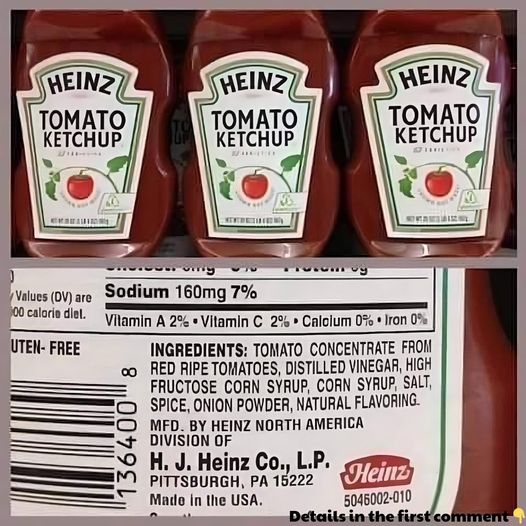The presence of high fructose corn syrup (HFCS) in popular food products has long been a contentious issue, with Heinz Ketchup finding itself at the center of this ongoing debate. As consumers seek to make informed choices about their dietary preferences, it is crucial to gather information from various credible sources to understand the nuances surrounding this complex ingredient.
HFCS is a corn starch-derived sweetener that is processed to convert glucose into fructose, making it a cost-effective and highly sweet alternative to traditional cane sugar. However, the potential health risks associated with HFCS, such as its potential contributions to obesity and metabolic syndrome, have sparked a heated debate within the scientific community and among health-conscious consumers.
One of the key points to consider when discussing HFCS is the importance of moderation. It is important to recognize that the consumption of excessive amounts of any sweetener, be it HFCS, cane sugar, or even honey, can have negative health implications. Striking a balance and being mindful of overall caloric intake is essential for maintaining a healthy lifestyle.
Another factor to consider is the fact that HFCS is often derived from genetically modified (GMO) corn, which has its own set of ongoing debates and discussions surrounding the potential health effects of GMO products. As the scientific community continues to study the long-term implications of GMO consumption, this is an aspect that consumers should be aware of when making informed decisions about their dietary choices.
When it comes to Heinz Ketchup specifically, it is important to examine the product’s complete nutritional profile, including not just the presence of HFCS but also other additives, preservatives, and the overall caloric and sodium content. Evaluating the ketchup’s holistic nutritional value can provide a more comprehensive understanding of its potential impact on one’s health.
It’s worth noting that some studies, such as a Princeton study, have found differences in the way rats metabolize HFCS compared to other sugars. However, these studies have been criticized for not accurately reflecting the way human metabolism functions, and the overall evidence surrounding the direct health impacts of HFCS remains inconclusive.
ADVERTISEMENT
